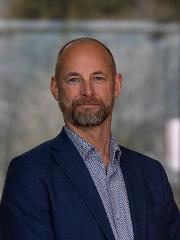Kommisjonsmedlem Ketil Zachariassen deltar på denne konferansen som tar for seg Sannhets- og forsoningskommisjoner i Arktis. Det er Danish Institute for International Studies som arrangerer konferansen.

What is the role of Truth and Reconciliation Commissions in established democracies?
In December 2015, the Canadian Truth and Reconciliation Commission handed in its final report documenting the history and lingering impact of the Canadian Indian residential school system. 2 years later, in December 2017, the Reconciliation Commission of Greenland handed over its final report dealing with internal reconciliation in Greenland considering the modernization and Danification policies after 1953. A few months later, in the summer of 2018, the Norwegian Parliament nominated a Truth and Reconciliation Commission to document the history of the Norwegianization policies directed towards the Sámi people, the Kven people and Norwegian Finns, the long-term effects and possible initiatives to foster reconciliation. Moreover, Sámediggi – the Sámi Parliament in Sweden - is in the process of preparing a future Truth commission to deal with questions of similar policies and injustices committed against the Sámi. So far, the Church of Sweden has carried out a White Book project in 2012–2017.
'The TRCs in the Nordic countries, Greenland and Canada share more than a conjunction of mandate periods. They all deal with historical injustices committed against indigenous peoples in the Arctic taking place in roughly the same period, namely the 20th century. Common to the Nordic countries and Greenland is also the fact that the injustices were committed by Scandinavian welfare states in their making. Characteristic to all cases is the role assimilation policies played: in Canada through the Residential Schools, in Norway through Norwegianization policies (fornorskningspolitik) and in Greenland, the Danification or Modernization policies carried out after 1950. The extinction of language and indigenous cultures and an attempt to replace these with modern Western lifestyles and the language of the state, is thus a common feature.
The types of slow and often indirect violence involved in these historical policies, and the consequences and after-effects, set the focus and working method of these TRCs apart from previous TRCs that have often been set up in the immediate aftermath of civil wars. Whereas securing stability and introducing rule of law have often been of central issue to previous TRCs, the Norwegian, Greenlandic and Canadian TRCs have been set up in a period characterized by democracy, stability and a peace that it is not particularly fragile. These TRCs have and are thus arguably in the process of finding new working methods and approaches to historical injustices.
This 2-day conference, gathering experts and practitioners from all 5 countries, will explore commonalities and differences between the above-mentioned TRCs. On the first day, researchers from the 5 countries will present and discuss the TRCs. On the second day, invited members of the Canadian Truth and Reconciliation Commission, The Greenlandic Reconciliation Commission and the Norwegian Truth and Reconciliation will tell about their work and experiences with the processes, findings and outcomes.
The afternoon session will focus on the aftermath of the Greenlandic Reconciliation Commission by opening the floor to a political debate amongst politicians from Greenland and Denmark. This debate will address the question of what could be learned from the Greenlandic process and how to pick up on the recommendations presented by the Greenlandic Reconciliation Commission.
The seminar is held in collaboration with Ilisimatusarfik – The University of Greenland and Aarhus University.
Slutter: 18.09.19 kl 16.00